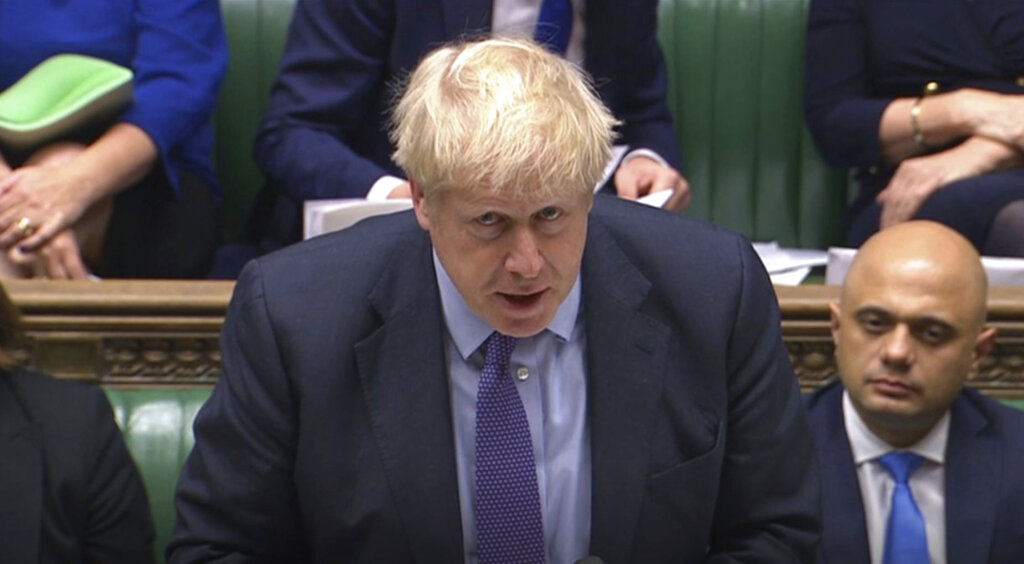Prime Minister Boris Johnson suffered a damaging setback on Tuesday in his quest to take Britain out of the EU, losing a critical vote in Parliament and raising the prospect he might shelve his withdrawal deal and toss the debate over Brexit to the voters in an election.
Johnson’s latest defeat came only 30 minutes after his first victory in Parliament. Lawmakers granted preliminary approval to the withdrawal deal he struck with the EU last week, a major step towards achieving the Prime Minister’s goal and one that broke a string of defeats for him.
But the MPs refused in a crucial follow-up vote to put legislation enacting Britain’s departure on a fast track to passage, which could have enabled Johnson to meet his deadline of leaving the EU by October 31.
The back-to-back votes captured the one-step-forward, one-step-back nature of the Brexit saga. While lawmakers endorsed the contours of Johnson’s plan — something they had never done for his predecessor, Theresa May — they balked at being stampeded into passing the necessary legislation in three days.
The EU will now have to decide how long an extension to grant Britain. Johnson said earlier on Tuesday that if the deadlock slipped into next year, he would rather pull the legislation altogether and face the voters, calculating that he could still win a popular mandate for a swift Brexit.
But if the EU offers only a short-term extension of a few weeks, Johnson might well continue battling for passage of his Brexit blueprint, betting that the pressure would increase on Parliament to pass a deal that its members had already shown support for in principle.
Some critics noted that the legislation — which runs to 435 pages including annexes, and would have profound consequences for the future of the country — was going to have less time for scrutiny in the House of Commons than a recent bill prohibiting the use of wild animals in travelling circuses.
On a day that encapsulated both the high drama and recurring gridlock of the Brexit debate, Johnson implored Parliament to pass both the agreement and the enacting legislation by this Thursday, calling it the last chance for Britain to make an exit from Europe with a deal in hand.
“I will in no way allow months more of this,” Johnson insisted at the beginning of hours of heated debate.
“If Parliament refuses to allow Brexit to happen,” he said, “I must say that the bill will have to be pulled and we will have to go forward to a general election. I will argue at that election: ‘Let’s get Brexit done.’”
Whether Johnson is serious about shelving his own deal — or was simply using it as a threat to pressure wavering lawmakers — was open to interpretation. But it made for another day of political theatre in the House of Commons, where lawmakers rose one after another to condemn the government’s strong-arm tactics or to plead for an end to the endless frustration of Brexit.
“The devil is in the detail,” said the leader of the Labour Party, Jeremy Corbyn, “and having seen the detail it confirms everything we thought about this rotten deal: a charter for deregulation across the board, paving the way for a Trump-style trade deal that will attack jobs, rights and protections.”
Other Labour MPs promised to push for a series of amendments to the deal that could act as a kind of poison pill: demanding that there be a second referendum on whether to leave the EU or putting all of the UK into the EU’s customs union — a provision that helped torpedo May’s withdrawal agreement.











